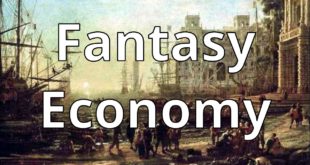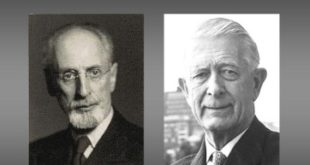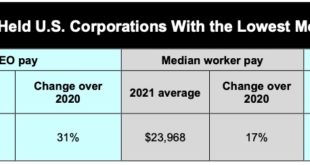from Dean Baker It was very frustrating to read Noam Scheiber’s profile of Jaz Brisack, the person who led the first successful union organizing drive at a Starbucks. Brisack does sound like a very impressive person and it is good to see her getting the attention her efforts warrant. However, Scheiber ruins the story by repeatedly telling readers that the neoliberals, who have dominated political debate in recent decades, want a free market. Nothing could be further from the truth....
Read More »Mainstream economics — the art of building fantasy worlds
from Lars Syll Mainstream macroeconomic models standardly assume things like rational expectations, Walrasian market clearing, unique equilibria, time invariance, linear separability and homogeneity of both inputs/outputs and technology, infinitely lived intertemporally optimizing representative household/ consumer/producer agents with homothetic and identical preferences, etc., etc. At the same time, the models standardly ignore complexity, diversity, uncertainty, coordination problems,...
Read More »Should Ukraine be part the EU?
Ukraine applied for EU membership. The application has been accepted, the long journey towards membership has started. Good? Bad? Let’s first be honest about the EU. And the Russian empire – which of course is the main motivator behind the Ukrainian application. We can be short about the Russian empire. It is large, resource rich, not exactly a failed state but governed by a closed self- enriching criminal gang of with fantasies about a Russian greatness which never existed. It’s also...
Read More »World Economic Forum touts Bitcoin as a tool against global warming
from Norbert Häring With its Great Reset, the World Economic Forum, the lobby of the world’s largest corporations, supposedly wants to save the world from climate collapse. With a contribution on protecting the climate through Bitcoin, the powerful organisation proves- once again – that distrust is called for when it comes to corporate commitments to social goals. Greenwashing is the order of the day. Scandalously, the World Economic Forum is recognised as an international organisation,...
Read More »Socialism ain’t what it used to be
from Dean Baker I was very disappointed with Ezra Klein’s NYT interview with Bhaskar Sunkara, in large part because I have a high opinion of Sunkara, the founder of Jacobin and now the president of The Nation. My main disappointment stems from his non-answer to one of the main questions raised by Klein. Klein asked why the Democrats, and other liberal/left parties around the world, rely largely on more educated people for their support, while more working-class types have turned to the...
Read More »Free trade
from Lars Syll In 1817 David Ricardo presented — in Principles — a theory that was meant to explain why countries trade and, based on the concept of opportunity cost, how the pattern of export and import is ruled by countries exporting goods in which they have a comparative advantage and importing goods in which they have a comparative disadvantage. Ricardo’s theory of comparative advantage, however, didn’t explain why the comparative advantage was the way it was. At the beginning of the...
Read More »7450 Hall Creek Rd | Dean Baker
Take a Virtual Tour : https://tours.bluelavamedia.com/118246?referrer=youtube.com Tucked away from the hustle & bustle is where you'll find this magical estate that once graced the cover of Traverse Magazine, touted as a Top Secret Getaway . Hall Creek Bed & Breakfast was designed with quality and privacy in mind, boasting 5 bedrooms, each with a private en-suite and screened-in balcony. You'll love spending time on the deck or patio watching the birds & wildlife with the...
Read More »Real statistics: a radical approach
from Asad Zaman In a previous posts Preface to Radical Statistics and Why an Islamic Approach to Statistics?, I have explained how we can develop a new approach to statistics, which rejects a century of developments based on a methodology created by Sir Ronald Fisher, father of modern statistics. It is my hope that this will be a disruptive technology – it will eventually sweep away the entire structure of knowledge which has been built up under this name, and replace it with a radically...
Read More »Reset this!
from David Ruccio This was supposed to be the great reset. As the U.S. economy recovered from the Pandemic Depression, millions of jobs were being created, unemployment was falling, and the balance of power between workers and capitalists would shift toward wage-earners and against their employers. That, at least, was the promise (or, for capitalists, the fear). But greedflation has delivered exactly the opposite: workers’ real wages are barely rising while corporate profits are soaring....
Read More »Abduction — beyond deduction and induction
from Lars Syll Science is made possible by the fact that there are structures that are durable and independent of our knowledge or beliefs about them. There exists a reality beyond our theories and concepts of it. Contrary to positivism, yours truly would as a critical realist argue that the main task of science is not to detect event-regularities between observed facts, but rather to identify and explain the underlying structures/forces/powers/ mechanisms that produce the observed...
Read More » Real-World Economics Review
Real-World Economics Review





